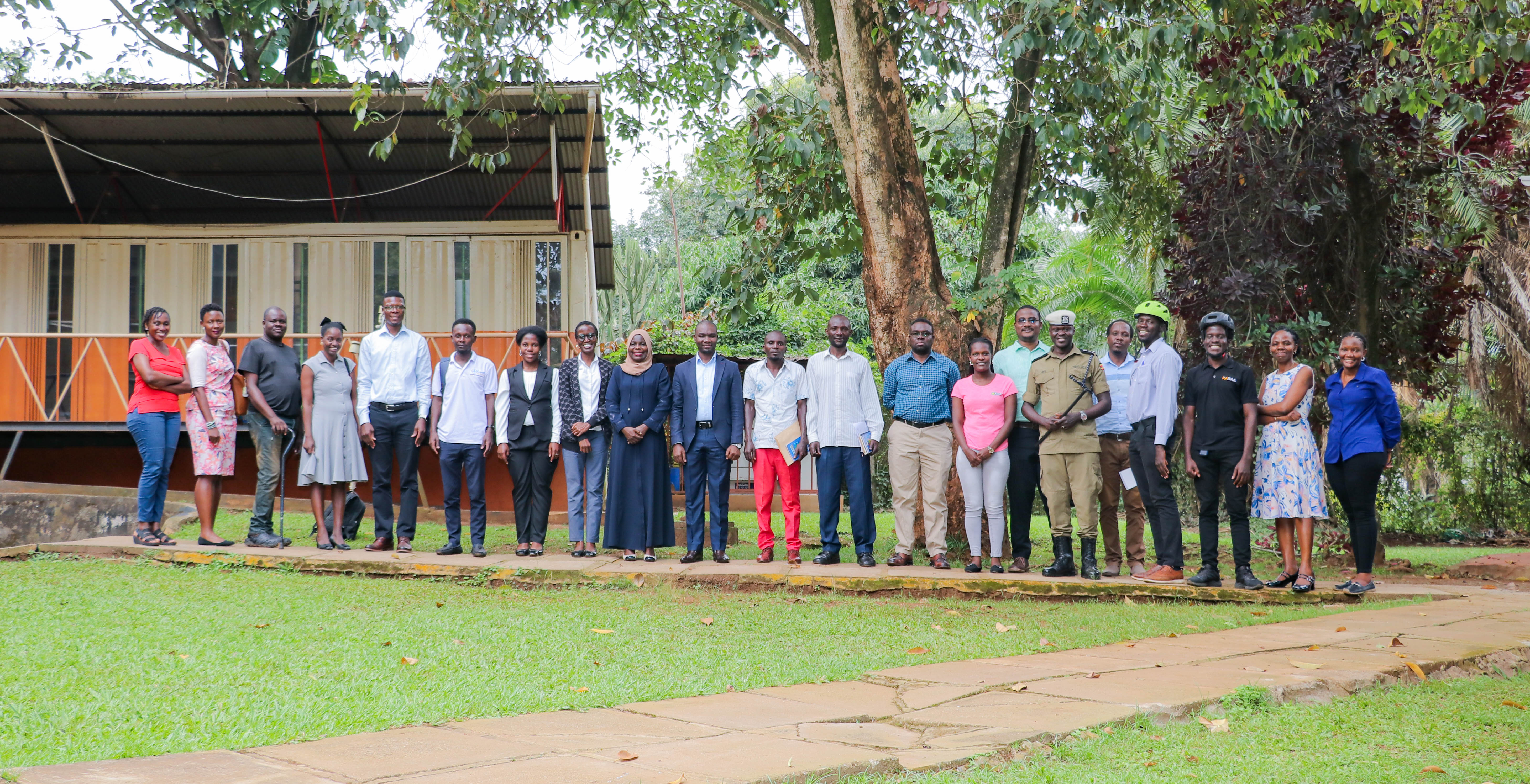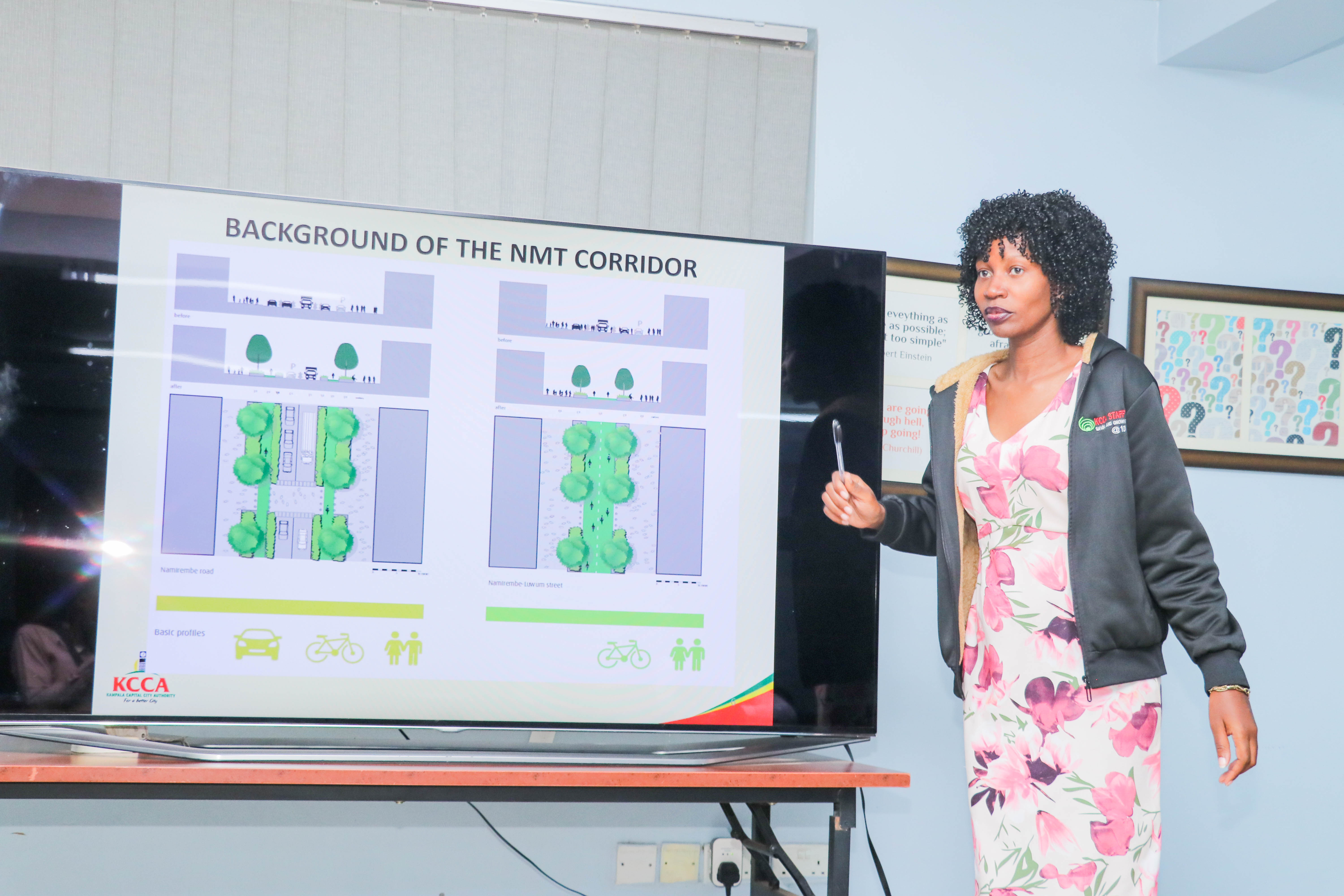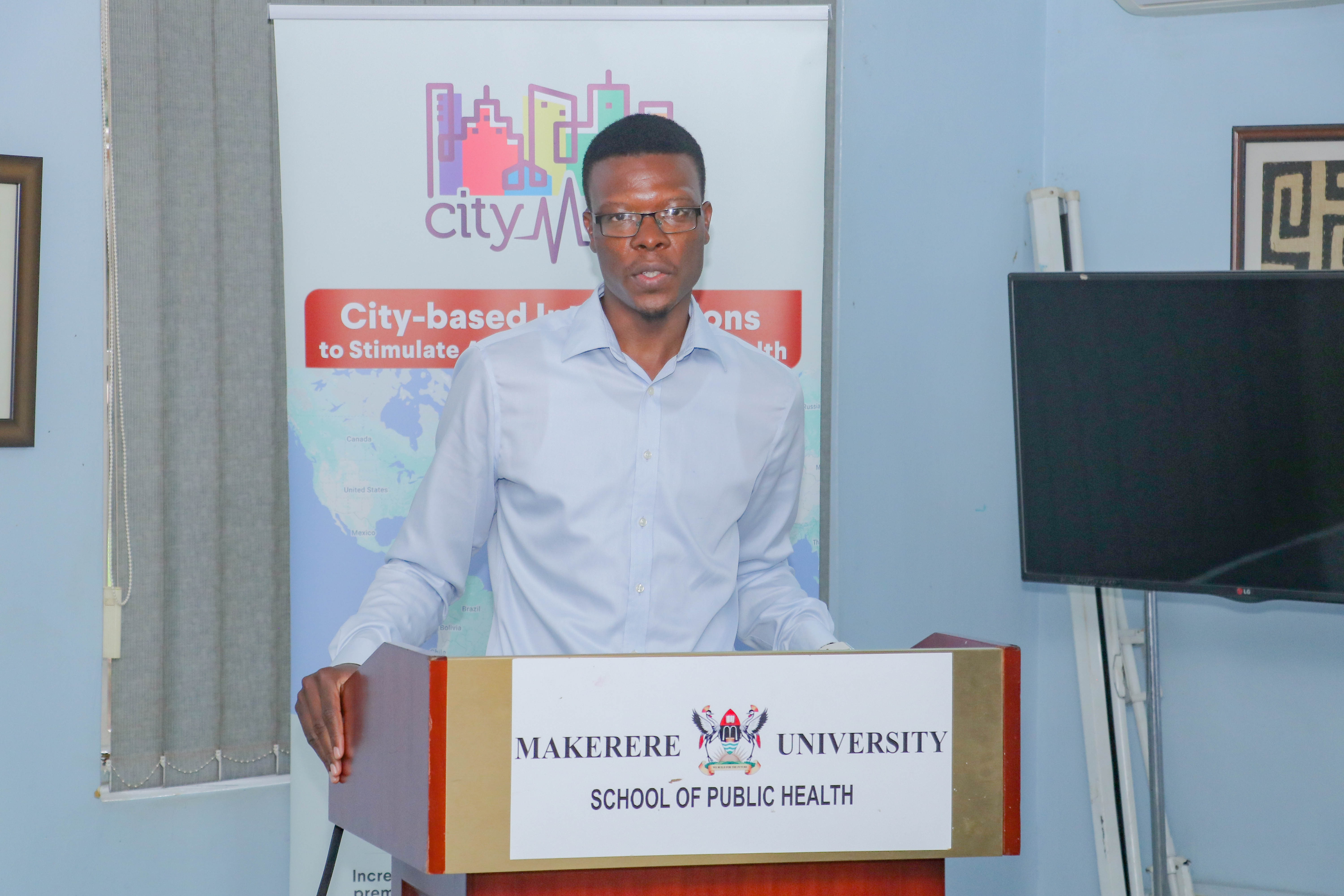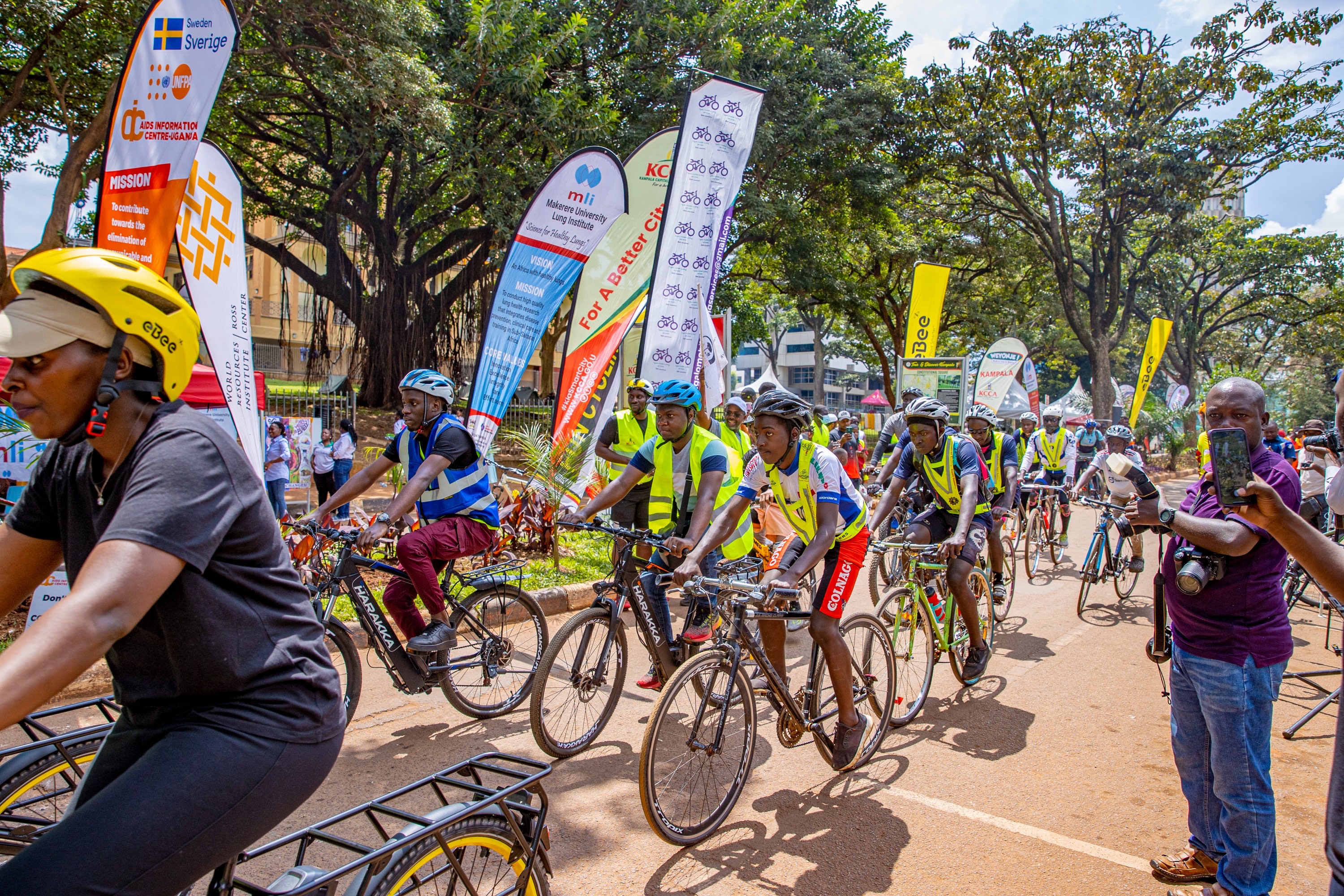
By Okeya John
Cities worldwide are expanding rapidly, presenting new public health challenges for residents and authorities. In Kampala, Uganda, this urban sprawl has resulted in increased congestion and pollution, alongside an infrastructure that prioritises vehicles over pedestrians.
What this means is that there is a high rise in lifestyle-related diseases, commonly known as non-communicable diseases, which are chronic conditions that are not passed from person to person; caused by factors such as poor diet, lack of physical activity, tobacco use, and alcohol consumption, and they include diseases like diabetes, heart disease, cancer, and stroke.
Uganda’s Ministry of Health recognises that the burden of non-communicable diseases is on the increase, with physical inactivity being a major driver. In its 2021 report, the Ministry revealed that non-communicable diseases account for up to 33 per cent of all deaths in the country, with urban areas like Kampala hit hardest due to sedentary lifestyles and poor infrastructure for physical activity. This growing trend signals a major public health concern.
In response, the City-Based Interventions to Stimulate Active Movement for Health in Kampala, known as the City-Move project, launched recently in 2024, seeks to combat this troubling trend. The project promotes physical activity in urban areas worldwide, encouraging activities like brisk walking, cycling, swimming, running, dancing, and sports such as tennis and basketball to improve the overall health and well-being of urban populations.

The initiative is a four-year project running between 2024–2027 funded by the European Union, bringing together a consortium of academic and city partners from across Europe, South America, and Africa, with the mission to reduce the prevalence of non-communicable diseases related to physical inactivity, improve mental health, enhance cardiovascular and muscular fitness, and increase life expectancy – which for Uganda today, stands at 68 years.
A recent 2022 World Health Organisation (WHO) Global Status Report on Physical Activity indicates that a staggering 27 per cent of adults in Uganda fail to meet the recommended levels of physical activity, something that continues to heighten their risks of attaining non-communicable diseases, largely attributed to rapid urbanisation, inadequate infrastructure for walking and cycling within Kampala, and lifestyle changes favouring sedentary behaviour.
A sedentary lifestyle means having little or no physical activity. In Uganda, this lifestyle is driven by increased time spent sitting due to office jobs, over-reliance on motorized transport over walking or cycling, prolonged time spent on screen monitors, and reduced engagement in physical labour as technology becomes more integrated into our daily lives.
However, for WHO, the recommended activity is at least 150-300 minutes of moderate-intensity aerobic physical activity or 75-150 minutes of vigorous-intensity activity per week, combined with muscle-strengthening activities for at least two days for adults, and at least 60 minutes of moderate-to-vigorous physical activity daily for children and adolescents.
City-Move, a consortium project led by the University of Antwerp in Belgium, unites nine implementing partners to combat the rise of sedentary lifestyles. The partners include Makerere University School of Public Health (MakSPH) in Uganda, Erasmus University Rotterdam in the Netherlands, Community Health Centre in Ljubljana, Slovenia, University of Essex in the UK, Universidad Nacional Agraria La Molina in Peru, Fundación Universitaria Juan N. Corpas in Colombia, Walk21 Europe in the Netherlands, and the City of Antwerp.

Together, the consortium promotes active movement to improve health outcomes in urban areas worldwide. In Uganda, the project is led by Dr. Rawlance Ndejjo, the Principal Investigator and Assistant Lecturer at the Department of Disease Control and Environmental Health, Makerere University School of Public Health, alongside the team that includes Dr. Esther Buregyeya, Ms. Grace Nalukwago, and Ms. Emily Luyiga.
In a recent lunchtime seminar organised on 19th September 2024 in Kampala under the topical theme: City-Move: Stimulating Active Movement for Health in Kampala-Uganda, the project unveiled its implementation plan and ongoing project activities for Kampala–Uganda. During the seminar, Dr. Ndejjo said the project’s focus on cities is guided by the reality that cities are home to over half the world’s population, requiring an intervention to guarantee the health and well-being of these significant groups through improved focus on physical activity.
“There is a projection that by 2050, two-thirds of the world’s population will be living in cities and that means we need to think about cities beyond just a place where we go to look for opportunities. We need to think about cities in a way that promotes health,” Dr. Ndejjo noted.
Adding: “Many of us come to Kampala but the plan to go back to our rural areas is minimal. We all want to establish ourselves somewhere in the city and get opportunities, so under this project, we want to create a city that provides a conducive environment for us to achieve all our needs, but also, promote our health. That is why we are focusing on cities”

The Principal Investigator for the City-Move Project in Uganda further divulged that cities are key in addressing the determinants of health, which among others include; access to healthcare, quality of housing, environmental factors like pollution and clean water, infrastructure that supports physical activity such as parks and walkways, socioeconomic conditions, education, employment opportunities, and transportation systems, which collectively, influence the health and well-being of the urban population.
As part of its early-stage interventions in Kampala, the City-Move project recently participated in organizing the Kampala Car-Free Day on September 7, 2024, an event led by the Kampala Capital City Authority (KCCA) to promote non-motorized transport and raise awareness of physical activity. This initiative featured activities like walking, cycling, sports, street art and painting, aimed at encouraging alternative, healthier modes of transport.
“We observe there are a lot of people who are not physically active, higher among adolescents at about 80 per cent and adults at about 25 per cent. So, we feel we have this good intervention that we can all take up.” Dr. Ndejjo noted during the recent City-Move seminar that attracted over 100 virtual and physical participants, emphasizing the health benefits of physical activity.
On the current status of active movement in Kampala, the Principal Investigator revealed that about 42 per cent of Kampala residents walk out of necessity, although, there remains inadequate infrastructure for walking and hardly any for cycling. The city's roadways prioritize vehicles, offering little protection to pedestrians, while commercial motorcycles frequently encroach on pavements, further endangering walkers. This has resulted in a high rate of road traffic crashes, with pedestrians accounting for over 50 per cent of road fatalities in Kampala.

According to last year’s Uganda Police Crime Report, there were over 4,800 road fatalities recorded nationwide in 2023, with pedestrians being one of the most vulnerable groups. In addition to the safety concerns, Kampala also suffers from severe air pollution, which is the highest among cities around the region and lacks organised public spaces designated to facilitate physical activity. Accordingly, these conditions further restrict opportunities for active movement and contribute to the city's rising public health challenges.
Another early-stage project intervention is the Kampala Monthly Cycling, launched in 2024 to engage stakeholders in cycling within the city. To further advocate for sustainable urban mobility, the project recently organized a webinar titled "Cycling in Kampala: Breaking the Barriers to Build a Sustainable City." The webinar, led by Ms. Grace Nalukwago, highlighted the challenges of Kampala’s cycling infrastructure, shared experiences from stakeholders, and promoted efforts to boost cycling as a viable mode of transport in the city.
Before that, the City-Move project on 26th September 2024 held a stakeholder's workshop on improving the use of the non-motorised transport pilot corridor, which is a 2.1 km stretch along Namirembe Road and Luwumu Street in Kampala, at MakSPH’s Resilient Africa Network lab in Kololo, an activity that brought together multi-stakeholders representing KCCA, civil society, academics, riders, cyclists, urban dwellers, activists, among others. The promotion of non-motorised movement will form part of City-Move’s late-stage intervention.
One of the participants, Mr. Hakim Owiny, a cycling advocate in Kampala, noted the role of cycling in combating air pollution and improving health urban. He called for collaboration among stakeholders, highlighting the importance of research in informing advocacy and policy decisions for safer cycling infrastructure in Kampala, including calls for inclusive road systems, secure parking, and greater support for cycling as a sustainable mode of transport.
"The Makerere University School of Public Health, through its City Move Project, is helping bring attention to the importance of cycling in Kampala. Their research supports our advocacy efforts and ensures that we have the right information to engage policymakers and stakeholders in promoting a safer and healthier city through active movement." Owiniy said.
The general objective of the City-Move project is to adapt and evaluate the World Health Organisation Global Action Plan on Physical Activity (GAPPA) interventions across six cities globally, learning from diverse cultural and economic contexts. This involves refining city-level GAPPA through stakeholder engagement, supporting early-phase implementation via action research in Living Labs, and assessing the feasibility, sustainability, and adoption of interventions while improving data collection for better implementation outcomes.

